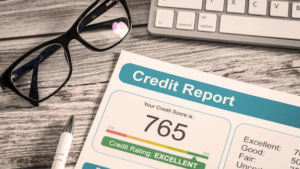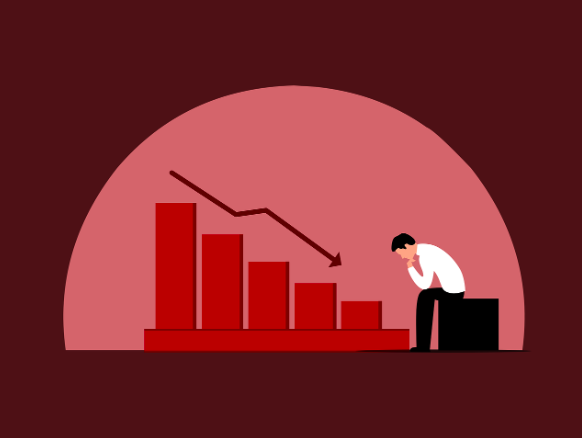Both no credit and bad credit can present difficulties in everyday situations. Creditworthiness plays a pivotal role in accessing various financial products and services.
While bad credit is often viewed as a significant obstacle, there is another scenario that often flies under the radar: having no credit history at all. With this in mind, Finger Finance delves into the nuances of creditworthiness to answer the question whether no credit is worse than bad credit. By examining the implications of both scenarios, this article aims to provide clarity on this often overlooked aspect of financial health.
What is Creditworthiness?
Creditworthiness refers to an individual’s perceived ability to repay borrowed money based on their credit history and financial behavior. Lenders and financial institutions use credit scores, derived from credit reports, to assess an individual’s creditworthiness. A higher credit score indicates lower credit risk, making it easier to qualify for loans, credit cards and other financial products at favorable terms.

What Are The Consequences Of Bad Credit?
Having bad credit typically stems from a history of late payments, defaults, high levels of debt or other negative financial behaviors. The consequences of bad credit can be far-reaching and include:
| Limited Access to Credit: | Individuals with bad credit may struggle to qualify for loans, credit cards or lines of credit. When they do, they often face higher interest rates, stricter terms and lower credit limits, limiting their borrowing capacity and increasing the cost of borrowing. |
| Higher Interest Rates: | Lenders view individuals with bad credit as higher-risk borrowers, resulting in higher interest rates to offset the perceived risk. This means paying more in interest over time, leading to higher overall costs for borrowed funds. |
| Difficulty Renting Housing: | Landlords and property management companies often conduct credit checks as part of the rental application process. Individuals with bad credit may encounter difficulties securing rental housing or may be required to pay a higher security deposit to offset perceived risk. |
| Employment Challenges: | Some employers may review credit reports as part of the hiring process, particularly for positions that involve financial responsibilities. While credit history is not the sole determinant of employability, individuals with bad credit may face additional scrutiny or be passed over for job opportunities. |
What Are The Challenges Of Having No Credit?
On the other end of the spectrum lies the dilemma of having no credit history at all. While it may seem innocuous, lacking a credit history can present its own set of challenges:
| Limited Access to Credit: | Similar to individuals with bad credit, those with no credit history may struggle to qualify for loans, credit cards or other financial products. Without a track record of responsible borrowing and repayment, lenders may be hesitant to extend credit. |
| Higher Interest Rates: | Even if individuals with no credit are able to qualify for credit products, they may still face higher interest rates and less favorable terms compared to those with established credit histories. Lenders perceive them as unknown risks, leading to cautious lending practices. |
| Difficulty Establishing Credit: | Paradoxically, one of the challenges of having no credit is the difficulty in establishing credit. Without a credit history, individuals may find it challenging to access credit-building opportunities, such as secured credit cards or small installment loans, which are typically used to establish credit for newcomers to the financial system. |
| Limited Financial Opportunities: | Beyond borrowing, a lack of credit history can impact various aspects of financial life, including renting housing, obtaining insurance or even securing utility services. Without a track record of responsible financial behavior, individuals may encounter obstacles in these areas as well. |
Given the challenges associated with both bad credit and no credit, it is essential for individuals to take proactive steps to improve their creditworthiness. Methods to achieve this include:
Establishing Credit: For individuals with no credit history, the first step is to establish credit by opening a credit card, taking out a small loan or becoming an authorized user on someone else’s credit account. Responsible use and timely repayment are key to building a positive credit history over time.
Rebuilding Credit: For those with bad credit, rebuilding credit requires a concerted effort to address past issues and demonstrate improved financial behavior. This may involve paying bills on time, reducing debt levels and disputing any inaccuracies on credit reports.
Seeking Alternative Options: In cases where traditional credit products are inaccessible, exploring alternative options such as secured credit cards, credit-builder loans or rent reporting services can help individuals to establish or rebuild credit without taking on significant risk.
Financial Education: Regardless of credit status, ongoing financial education and responsible money management are essential. Understanding how credit works, budgeting effectively and avoiding common pitfalls can empower individuals to make informed financial decisions and improve their overall financial health. Speaking to financial advisors or counsellors can also be helpful.

The Bottom Line
In the debate over whether no credit is worse than bad credit, the answer lies in the nuances of individual financial situations. Both scenarios present challenges and obstacles to achieving financial goals, whether it is securing a loan, renting housing or obtaining employment.
However, with proactive steps and a commitment to responsible financial behavior, individuals can overcome these challenges and build a solid foundation for a brighter financial future. By understanding the factors that influence creditworthiness and taking proactive steps to improve it, individuals can navigate the complexities of the credit system and achieve greater financial stability over time.


